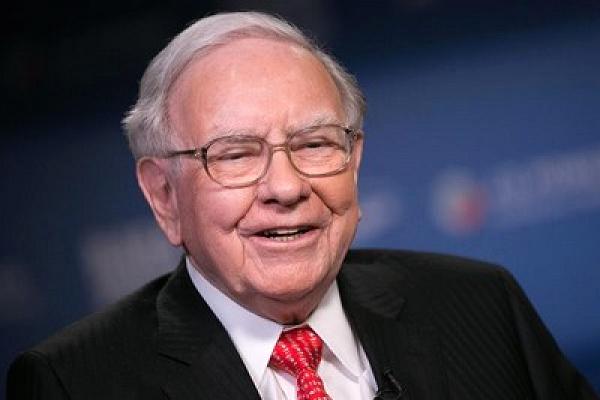What CEO's Said Last Week: Why lower oil prices have not immediately boosted the economy
by Scott Krisiloff, Avondale Asset Management
Each week we read dozens of transcripts from earnings calls and presentations as part of our investment process. Below is a weekly post which contains some of the most important quotes about the economy and industry trends from those transcripts. Click here to receive these posts weekly via email.
This Week’s Post: Warren’s Wisdom
This week was a slow week for earnings calls, but Warren Buffett did do a three hour interview with CNBC that featured classic Buffett wisdom. This week we also included excerpts from Dan Loeb’s Third Point Re conference call. Loeb was relatively positive on the economy, but not very excited about opportunities for activist investing.
The Macro Outlook:
Warren Buffett said that business is a little softer, but overall has kept moving up
“Business, I would say, is a little softer in many places, than people than I anticipated say four or five months ago…But, you know…overall the economy’s just kept movin’ up around 2%.” —Berkshire Hathaway CEO Warren Buffett (Conglomerate)
Dan Loeb sees a lot of people on alert, but not recession
“So as your question about recession, look, along with the other things like China oil prices, Fed policy, et cetera, I mean, that’s kind on the top of people’s list as far as concerns go. We are looking at economic data…what we do see is weakness in companies with cyclical exposure…But as far as industrial companies, consumer companies, certainly healthcare companies, we are not seeing any sign of a recession. We see a lot of people that are on alert, but there haven’t really been any signs of recession from either the economic data, the surveys or individual conversations with companies.” —Third Point Reinsurance Dan Loeb (Reinsurance)
Companies generally had positive things to say about the economy
Dollar tree is pleased with how its current quarter is trending
“As far as current trends…I’m pleased with where we are…my expectation is that we’re going to have a, we’re on track for a good first quarter” —Dollar Tree CEO Bob Sasser (Discount Stores)
Building markets are stronger than ever in CA, NY and FL
“building markets are stronger than ever in California, New York and Florida” —Tutor Perini CEO Ronald Tutor (Engineering and Construction)
Medtronic didn’t see any economy related issues
“anniversarying of the Affordable Care Act and that probably had a little bit of an impact. The overall procedure volumes based on the economy I think were more or less steady…There were no economy related issues.” —Medtronic CEO Omar Ishrak (Medical Device)
Del Frisco’s restuarants said that its upscale guests are still spending money
“contrary to popular belief, the upscale guest is spending more money. We see that at the Del Frisco’s brand, we see at the Sullivan’s brand” —Del Frisco’s CEO Mark Mednansky (Restaurants)
Sun Hydraulics said that its distributors appear to have taken inventories down as far as they can
“We also follow our distributor inventory, and we saw that inventory started going South in late ’14, continuing into ’15. And it appears that that distributor inventory, they’ve taken it down to as far as they can take it down, so when they get an order from a customer, they now have to place orders on us.” —Sun Hydraulics CEO Allen Carlson (Industrial Components)
At some point you would expect to see companies spend more on expansion
“I think another thing that’s going to happen, I can’t predict when, and that is consumer spending will eventually turn into capital spending in projects. That hasn’t happen yet, but I think the way out of this slowdown — I won’t call it a recession, but the slowdown will be based upon consumer spending driving things into the capital markets.” —Sun Hydraulics CEO Allen Carlson (Industrial Components)
But then again, if Trump gets elected…
“If Donald Trump’s plans were ever implemented, the country would sink into a prolonged recession…His proposed 35% tariff-like penalties would instigate a trade war that would raise prices for consumers, kill export jobs, and lead entrepreneurs and businesses to flee America. His tax plan, in combination with his refusal to reform entitlements and to honestly address spending would balloon the deficit and the national debt. So even as Donald Trump has offered very few specific economic plans, what little he has said is enough to know that he would be very bad for American workers and for American families.” —Mitt Romney (Son of former American Motors President, George Romney)
International:
Government policies are already leading to overheated real estate markets in China
“Favorable government policies in China’s real-estate sector including easy monetary policies, relaxed home purchase and lower down-payments have supported the markets we serve…the China real estate market, it’s actually getting better. It’s getting actually crazy in recent weeks…the real estate market in Shanghai is getting overheated” —Xinyuan Real Estate (Chinese Real Estate Developer)
Baidu is a carbon copy of Google including the moon shot projects
“We see a very bright future for autonomous driving, especially here in China where we face severe pollution, frequent traffic jams and high mortality rates from traffic accidents…These days, the search algorithm itself is pretty much machine learning.” —Baidu CEO Robin Li (Search Engine)
Baidu is the type of company that benefits as the Chinese government promotes a “service based economy”
“Even as China’s overall growth slows, service and domestic consumption are growing faster…Baidu largely services these growing sectors. With our top revenue verticals by broad classification including retail ecommerce, local services, healthcare, financial services and education. We are confident in our outlook for Baidu and China’s growing sectors. Baidu plays a vital role as the platform to connect users and merchants in these verticals.” —Baidu CEO Robin Li (Search Engine)
Financials:
Volatility in public credit markets usually precedes defaults in private credit markets
“The fourth quarter was marked by escalating volatility in the public credit markets, a scene that continued into early 2016. As has been observed many times in the past, private credit markets tend to lag public credit markets. We expect that this time it is no different.” —Goldman Sachs Business Development Company COO Jonathan Yoder (BDC)
We’re in an interest rate environment that the world has never seen
“what’s happened with interest rates is really extraordinary. I mean you can go back and read everything Keynes wrote and everything Adam Smith wrote or Ricardo wrote…or you name it and Paul Samuelson…you won’t see a word…about sustained negative interest rates. I mean, we– really something the world hasn’t seen.” —Berkshire Hathaway CEO Warren Buffett (Conglomerate)
Interest rates have a huge gravitational pull on valuations
“It does have the effect of making all assets more valuable. I mean, interest rates are like gravity in valuations. I mean, if interest rates are nothing, you know, values can be almost infinite.” —Berkshire Hathaway CEO Warren Buffett (Conglomerate)
Negative rates absolutely affect people’s behavior
“Negative rates affect everybody’s behavior. I mean, hell, I know that I paid more for precision cast parts because interest rates are so low, than I would’ve paid if interest rates were 6% or 8%. I mean, it– it absolutely has an effect on my behavior…I mean, it is a huge stimulus” —Berkshire Hathaway CEO Warren Buffett (Conglomerate)
No one knows what will happen either
“in economics the most important thing to remember…after anything that happens if somebody tells you, “This is gonna happen,” you gotta say, “And then what?” There’s always– it’s like in physics or anything else, there’s always an “and then what.” So the question I always ask myself, “And then what?” And in terms of the say no interest rates when I say “and then what” I don’t know the answer…nobody’s seen this movie before. And you can go back and read all the great economists and nobody’s written about a long period of negative interest rates” —Berkshire Hathaway CEO Warren Buffett (Conglomerate)
Dan Loeb doesn’t see as many activist opportunities because companies have focused on rationalizing their capital structure
“I think what’s happening actually is a lot of companies have undertaken the sorts of operational improvements and more rational capital structure moves, that is making it…more difficult for activists, because you don’t have as many blatantly underperforming companies, because boards are holding the management teams more accountable” —Third Point Reinsurance Dan Loeb (Reinsurance)
He’s more focused on under-valued opportunities
“So we’re not seeing — that that’s not really what we’re focusing on. We’re really focusing on securities that are under-valued where we can make investments in the constructive and not have to take any kind of confrontational role with management teams.” —Third Point Reinsurance Dan Loeb (Reinsurance)
There are 29 million small businesses in the US and one million use QuickBooks
“In terms of opportunity ahead in total addressable market, there’s about 29 million small businesses in the U.S…and we currently have one million that are using QuickBooks Online.” —Intuit CEO Brad Smith (Accounting Software)
Consumer:
Poor performance from traditional retailers continues to create opportunities for off price retailers
“As long as traditional retailers continue to perform the way they are performing, you would think that there would be more opportunities there.” —Ross Stores CEO Barbara Rentler (Off-Price Retail)
The natural foods channel has fallen into a bit of a lull
“we’re at a little bit of a lull, as you know, within our natural channel but I feel fairly optimistic that we will also come out of that. It may take a couple years, but we will come out of that, too.” —UNFI CEO Steve Spinner (Natural foods distributor)
TV now only reaches 85% of US adults
“According to Nielsen’s Q3 comparable metrics report TVs weekly reach continues to decline, now reaching only 85% of U.S. adult 18-plus and it’s particularly losing ground with the key millennial audience. By contrast, radio continues to reach 93% of all U.S. adults 18-plus.” —Clear Channel CEO Fred Davidson (Radio and Billboards)
The price environment for online retailers is extremely competitive
“I think you are very well aware that the most aggressive pricing environment in retail exists online, because of all the dynamic price scraping that exists and the numerous times, specifically pure-play e-commerce sites can change prices throughout the day.” —J. C. Penney CEO Marvin R. Ellison (Retail)
Technology:
Workday says that legacy incumbents are paying the price for not fully embracing the cloud
“I think when both companies, when SAP and Oracle moved in to the cloud they were given a bit of a hall pass. They marketed the right terms, they used the same buzz word. But at the end of the day we all get measured about getting customers successful and in production and they failed. They have some proof points here and there, but in the large part neither really embraced a true cloud model and I think they are paying the price for that.” —Workday CEO Aneel Bhusri (SaaS)
Industrials:
The Dry Bulk shipping industry is facing its most challenging year in history
“We expect 2016 to be one of the most challenging years in dry bulk history.” —Star Bulk Carriers CEO Petros Pappas (Dry Bulk Shipping)
Hopefully earnings are as low as they can go, but we’re not near the end of the dry bulk recession yet
“We can’t go much further down on the earnings…but we’re not near yet at the end of recession.” —Diana Shipping CEO Simeon Palios (Dry Bulk)
Materials, Energy:
Warren Buffett explained why lower oil prices have not immediately boosted the economy
“There’s no question that it is good for the country, that lower oil prices. But what happens is that the benefit to the consumer, it feeds in– next time you go to– to the filling station, the gas station, you know, you save 15 or 20 bucks. It feeds in very slowly. But the capital values disappear immediately. So if you’re sitting with an oil industry in this country that’s producing ten million barrels a day or something of the sort– that’s– that– at $100– ten million barrels a day is– is a billion dollars of revenue– $365 billion a year, capital values may be $2 trillion based on that. Now all of a sudden you take it down to where you’re not making any money, and the $2 trillion of capital values disappears very quickly, the bank loans against it get sour very quickly. They– they quit buying from the service companies very quickly. So the negative effects to this huge capital value happen very quickly, whereas it’s easing to the consumer very slowly. So even though it’s good for the country net, when you’re an importing– economy, it can be very bad in the immediate effects it has” —Berkshire Hathaway CEO Warren Buffett (Conglomerate)
Lower gas prices are definitely good for auto parts retailers though
“Clearly the economic cycle that we’re with lower gas prices which are leading to really really high miles driven is very favorable for us. ” —Autozone CEO Bill Rhodes (Auto Parts Retail)
EOG says that it still has opportunities to improve productivity that could drive returns back to triple digits (this is probably not a positive data point for oil prices)
“It’s important to realize that this is much more than a small incremental shift in our drilling program. It’s a major step change in terms of per well productivity. For the average 2016 well, we estimate a 50% increase in the first 120 days of production per foot of treated lateral versus wells we completed in 2015. Our shift to premium drilling allows EOG to quickly return to triple-digit, and I’ll say this again, to quickly return to triple-digit capital rates of return as oil prices improve to modest levels.” —EOG CEO William Thomas (Oil E&P)
No one wants to be fooled by a false bottom again like last year
“When the oil prices begin to recover, we’re going to be disciplined going forward. We don’t – obviously don’t want to be fooled again, like the industry was fooled last year by a little bit of an uptick in oil price and it is not sustainable. So, we’re going to be disciplined and cautious going forward on ramping up capital until we’re very much convinced that this is not a short-term uptick in the price, and that the market is more in balance, and that the price is more sustainable.” —EOG CEO William Thomas (Oil E&P)
Dan Loeb sees more opportunities in debt than equity in energy markets
“We’re watching the energy markets very, very closely. We think that the better opportunities are on the credit side than on equities. As far as discounting, potential bad news ahead, we think the equities reflect more optimism about the price.” —Third Point Reinsurance Dan Loeb (Reinsurance)
Miscellaneous Nuggets of Wisdom:
Incentivize employees to think like owners
“our vision, values and process are building the culture of ownership and empowerment necessary for the long-term achievements of our company.” —Kraft Heinz CEO Bernardo Hees (Packaged Food)
There are no super wealthy economists
“I don’t pay any attention to what economists say frankly…I mean all these economists with 160 IQs and spending their life studying it. And can you name me one super wealthy economist who’s ever earned money out of securities? No. I mean, just go down the list now.” —Berkshire Hathaway CEO Warren Buffett (Conglomerate)
You’d be better off in stocks if you didn’t get a quote on them
“I mean if I owned a McDonald’s stand here in Omaha I would not get a quote on it every day…what I would think about is how’s this going to work over five years or ten years. I mean, people gonna keep eating hamburgers, they’re gonna like ours and all of that sort of thing. And you’d be better off in stocks if you did not get a quote on them” —Berkshire Hathaway CEO Warren Buffett (Conglomerate)
It’s a good thing when robots displace people’s jobs
“wouldn’t it be wonderful if someday we got to the point where there were robots everyplace. They were running farms, they were running Apple, they were running Berkshire Hathaway. And all you had to do was one person could punch a button at the start of every morning and all the goods and services that we’re getting now would be turned out by robots or whatever? And we’d have the goods. We’d have 18 million cars a year. You’d have a million more housing starts. We’d have all the iPads being sold. And if all of that came to one person pushing a button, would that be a tragedy? I mean, just think how how well we’d live. Now we’d have, instead of having to work 35 hours a week, we might work an hour a week or something of the sort. So, I mean, basically, the more output you can get from people, it– it frees ’em up to do other things. And one of the things it frees ’em up to do is work less” —Berkshire Hathaway CEO Warren Buffett (Conglomerate)
Full transcripts can be found at www.seekingalpha.com














